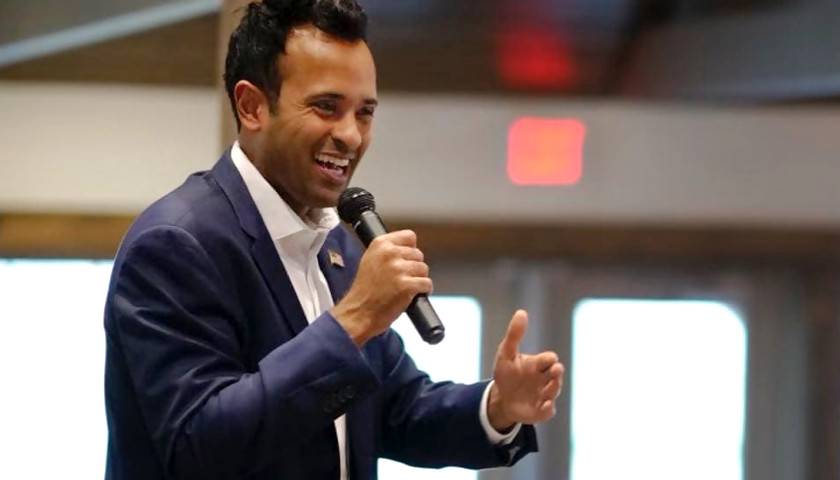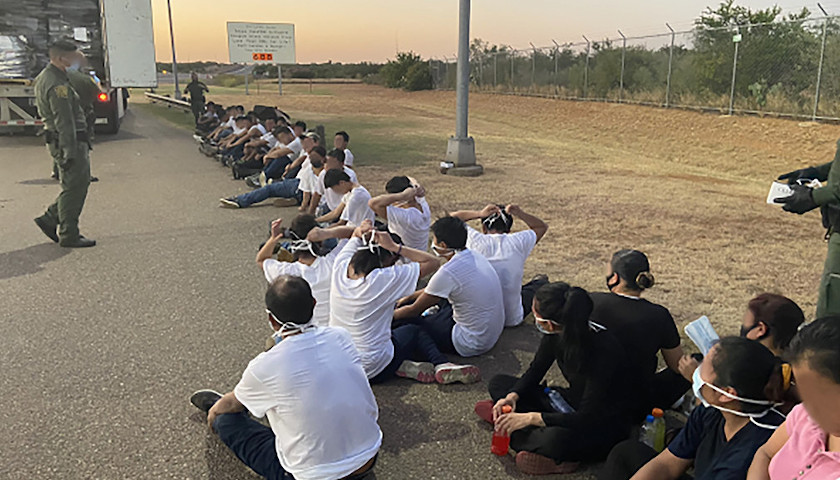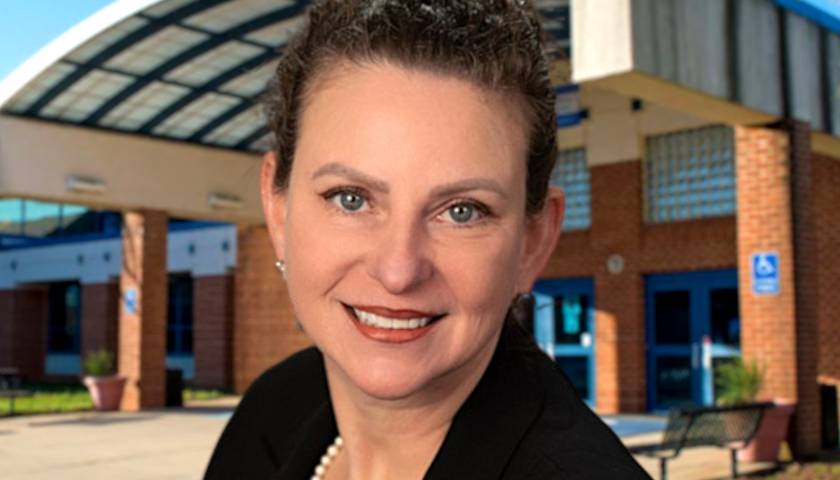DES MOINES, Iowa — Republican presidential candidate Vivek Ramaswamy knows there would be legal challenges to his sweeping plan to drastically reduce the size of the administrative state. The 38-year-old political outsider knows the big government left won’t give up the heart of the D.C swamp without a bruising fight.
Ramaswamy’s good with that.
“There are three branches of government in the United States, not four,” he said at Saturday’s Iowa Faith and Freedom Coalition presidential town hall in downtown Des Moines. “Yet that is the unconstitutional fourth branch, the shadow government in the Deep State in those three letter agencies that are spewing out the regulations that are hampering our economy, the regulations that congress never actually authorized, sucking the air and lifeblood out of the country.”
During a major domestic policy speech last week at the America First Policy Institute in Washington, D.C., Ramaswamy not only laid out his plan to halve the federal civil service’s 2.2 million employee workforce in his first year in office and shut down several government agencies, he detailed the legal means to do so.
Naysayers say such changes would require congressional approval. Not so, according to Ramaswamy.
He cited the President Jimmy Carter-era Executive Reorganization Act, key portions of which remain in effect.
It states, “The President shall from time to time examine the organization of all agencies and shall determine what changes therein are necessary to accomplish” several purposes. That includes reducing “the number of agencies by consolidating those having similar functions under a single head, and to abolish such agencies or functions thereof as may not be necessary for the efficient conduct of the Government…”
Talking to The Iowa Star following his appearance Saturday evening at the Des Moines event, Ramaswamy said he would use executive action to move his reorganization plan. He did not specify whether that would be through executive order, a directive from the Office of Personnel Management, or some other executive action.
The Ohio biotech entrepreneur asserts the executive branch authority is already on the books. He’s confident.
“What’s different from me relative to other presidents who may have had similar goals is I actually understand the laws and the constitution in this country,” said Ramaswamy, who earned a law degree from Yale. “I’m not just coming in as an outsider, but as an outsider who actually knows the law to be able to use that to actually shut down those agencies.”
Such a slashing of federal government jobs would instantly be contested by federal employee unions, administrative state defenders and the litigious left in general.
Bring it, Ramaswamy says. He fully expects such a monumental challenge would go to the U.S. Supreme Court, and he believes he’s got six of nine votes on his side there.
Asked what kind of judges and justices he would appoint, Ramaswamy said he wants jurists who know its unconstitutional to legislate from the bench.
“They have to share my originalist understanding of the constitution, not making the law up as they go along,” he said to applause from the Faith & Freedom Coalition audience. “They need to interpret the constitution as it actually exists.”
He noted that he’s the only candidate thus far who has released a full list of Supreme Court and appellate court candidates. Former President Donald Trump, who is the far and away frontrunner among the GOP presidential contenders, released a similar list ahead of the 2016 election. Doing so helped him shore up support among conservative voters.
Ramaswamy’s pool of candidates includes U.S. Senators Ted Cruz (R-TX) and Mike Lee (R-UT) for the high court, as well as Paul Clement, former President George W. Bush’s solicitor general. Also on the Supreme Court nomination list, judges James Ho, Lawrence VanDyke, Lisa Branch, Thomas Hardiman, Justin Walker and John Bush. All, at least based on their rulings, adjudicate from an originalist — or the law is what it says — point of view.
Ramaswamy said a key litmus test for judges he would nominate is that they share his “fundamental skepticism” of the administrative state.
He believes the conservative majority on the Supreme Court share his view that a U.S. president has the authority to shut down agencies like the FBI or the U.S. Department of Education, and can lay off 75 percent of bureaucrats staffing the federal workforce, as he ultimately plans to do. The court, Ramaswamy asserts, would also side with him on rescinding a majority of federal regulations and executive orders that he says are unconstitutional under the recent Supreme Court ruling in West Virginia vs. the EPA.
Ramaswamy said he would welcome a legal challenge to his executive actions.
“When we actually do shut down the administrative state, as painful as it will be for me, I hope we are sued. And I expect to take it to the Supreme Court so that we can codify that view of the constitution into judicial precedent,” the candidate said. “That is how we drive change on the timescales of history.”
– – –
M.D. Kittle is the National Political Editor for The Star News Network.
Photo “Vivek Ramaswamy” by Vivek Ramaswamy.




